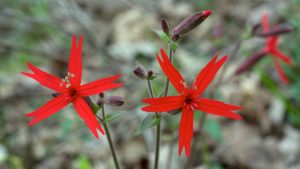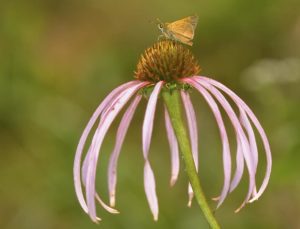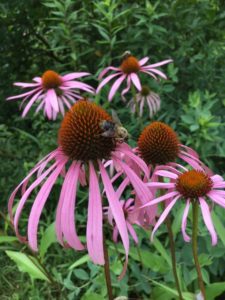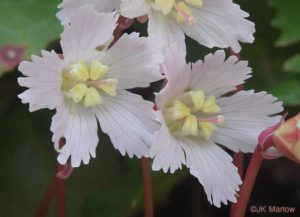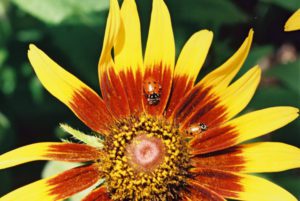Your Resource Hub for South Carolina’s Native Plants
This page serves as a hub for useful information about selecting, growing or finding our South Carolina native plants, with data about propagation, best conditions for planting, lifecycle & maintenance, and seed harvesting. It also provides you with various plant groupings to help you populate your landscape, as well as the when, how and where to purchase many of our natives around the state.
SC NATIVE PLANT LIST
On this listing are many of the plants considered to be ‘native’ to South Carolina. It is our intention to eventually include links to our own Native Plant Data Sheets or those of other resources (like Missouri Botanical Gardens, NCSU Plant Database, and NameThatPlant.net) that will provide you with photographs of the plant through it’s life-cycle along with plant characteristics, ideal conditions and useful information from our own membership.
SC NATIVE PLANT LIST (by Family)
SC NATIVE PLANT LIST (Scientific to Common)
SC NATIVE PLANT LIST (Common to Scientific)
SCNPS NATIVE PLANT SALES
One of the driving goals for the SCNPS is helping to make our native plants available to our communities. We’re seeing an increasing wide selection of native plants in commercial nurseries and our volunteer growers remain an important part of the network. Learn more about our plant sales.
If you haven’t already, please subscribe to our mailing list.
RARE & THREATENED NATIVES
Among the many incredible native plants in our states habitats are some of the rarest in the world. Some of these include:
- The Oconee Bell (Shortia galacifolia) story by Kay Ward
- Bunched Arrowhead (Sagittaria fasciculata)
- Dwarf-flowered heartleaf (Hexastylis naniflora)
- Cliff Saxifrage (Micranthes petiolaris var. petiolaris, or var. shealyi?
- Rocky Shoals Spider Lily (Hymenocallis coronaria)
SC THREATENED/ENDANGERED PLANTS
PLANT IDENTIFICATION
Dr. Steven R. Hill is a botanist with the Illinois Natural History Survey. Formerly the Curator of the Clemson University Herbarium (1987-1994), he is an Oconee County landowner where he plans tyo retire and remains an active and important member of SCNPS. Dr. Hill is happy to help you with those difficult-to-identify plants you find on your walks and he shares the answers with the rest of us to help grow the general knowledge base.
RIGHT PLANT – RIGHT PLACE
In this section, learn more about plant communities and groupings. One the most important considerations is getting this part right. Some of the most experienced of our membership have teamed together to arrive at these listings for your benefit and continue to update them based on new experience
NATIVE ALTERNATIVES TO INVASIVE PLANTS
NATIVE GROUND COVERS FOR SHADE GARDENS
NATIVE ATLERNATIVES TO TURF GRASS LAWNS
RETAIL NURSERIES IN SOUTH CAROLINA (and nearby)
NATIVE PLANTS: RETAIL LOCATIONS

